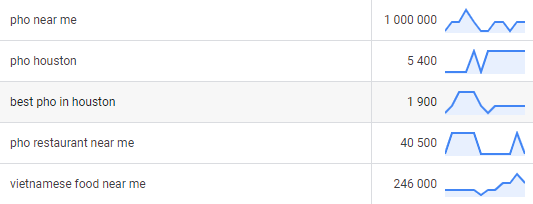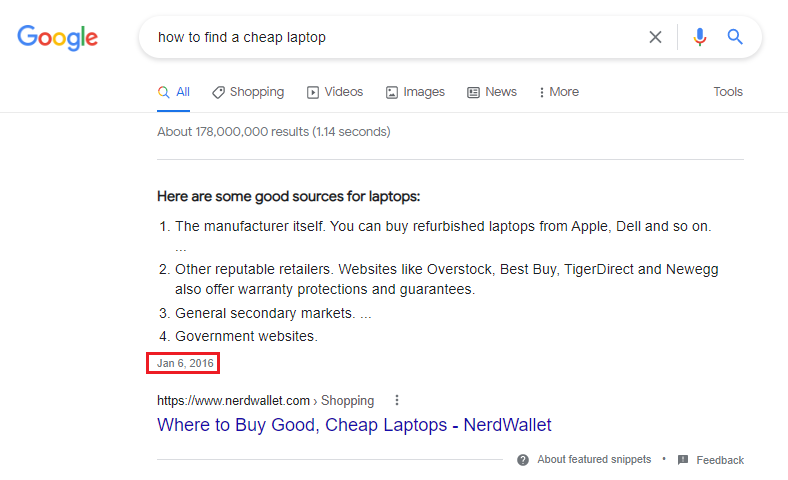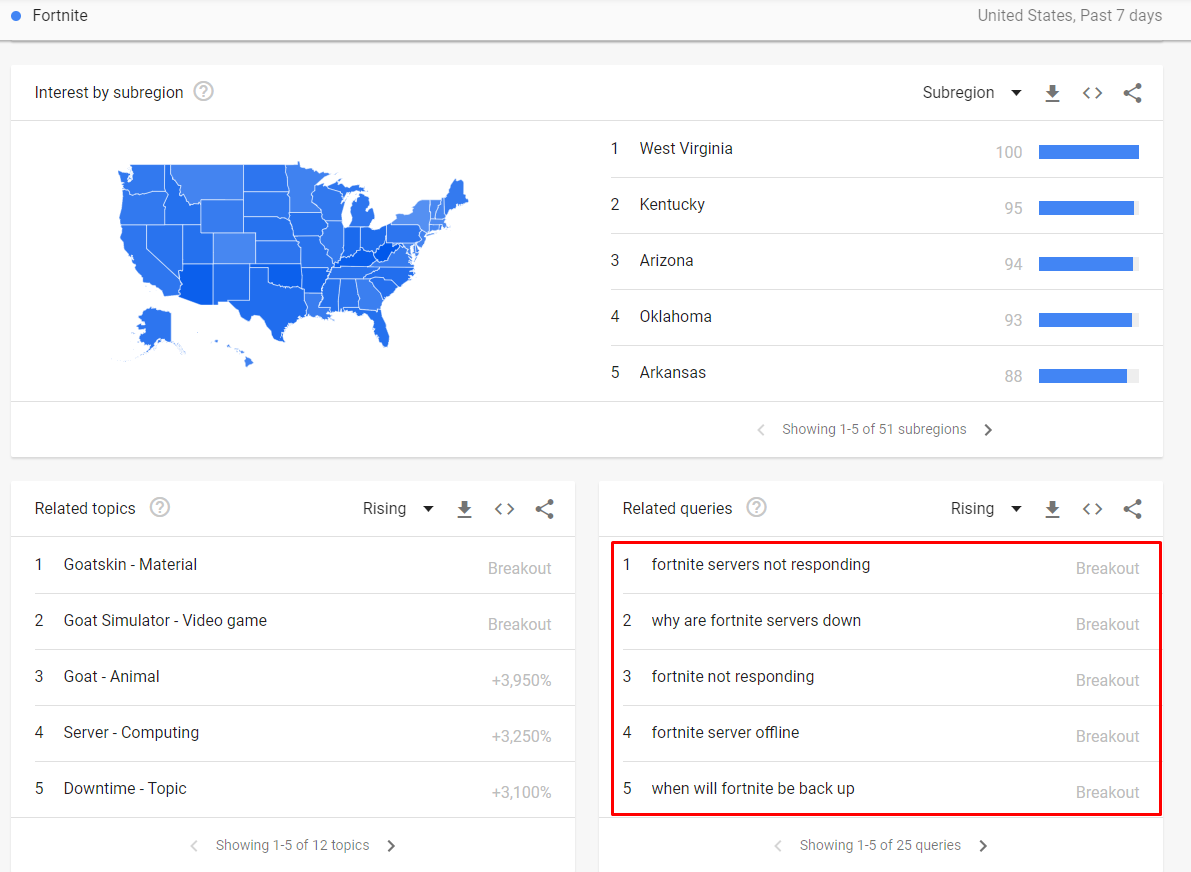15 types of keywords in SEO
If you’ve ever had anything in common with search engine optimization, you surely understand the role that keywords play in SEO and Google Ads. But did you know that there are different types of keywords? And they all are valuable from a specific point of view. In this article, we will see how such keywords can help you get more search traffic and reach your target audience more effectively.
In general, we can divide keywords into three major groups (types of keywords) based on their form and function:
- targeting keywords (they help you answer a specific search intent and search queries)
- on-site keywords (they describe what can be found on your website)
- Google Ads keywords (they are used when creating Google Ads campaigns)
Let’s take a closer look at each of these groups to see what’s their importance in your SEO efforts.

Keyword strategy: targeting keywords
That’s the first and most important type of keyword. In keyword research, targeting keywords help you understand how customers look for your products and services. They are also frequently related to the industry and your offer.
MARKET SEGMENT KEYWORDS
These are generic keywords used to describe the type of product or a specific industry. The target audience uses such primary keywords to discover more information about the product or broaden knowledge. They don’t refer to any particular product or service but rather to a group of products. A few examples: skis, printers, laptops, toys.
CUSTOMER-DEFINING KEYWORDS
Here, we go one step further. Customers define the product they’re looking for by who’s it for. The search intent is a bit more clarified. These types of keywords are sometimes used in paid search ads (Google Ads). Some examples: skis for women, printers for graphic designers, gaming laptops, toys for girls.
PRODUCT KEYWORDS
Sometimes product keyword can be called an exact match keyword because it refers to a very specific product. They are extremely popular in Google Ads and are frequently used in all search engines. Customers use such keywords to find a particular product. Examples: Samsung Galaxy S21, Asus VivoBook, Ford Fusion, Nike AirMax.
BRANDED KEYWORDS
These are used in search queries that comprise a specific brand. They are more general but limited to one particular manufacturer. They can also bring you a lot of search traffic when used properly. Branded keywords are also extremely popular in paid search. Examples: Ford cars, Adidas sneakers, Apple computers, Rolex watches.
COMPETITOR KEYWORDS
These are SEO keywords used by customers to find your competitors and their products. Why would you be interested in them? Because they allow you to find out how to attract a similar audience and offer them your product instead. After all, the majority of people looking for Adidas sneakers should also be open to seeing some Nike sneakers as well, correct?
GEO-TARGETED KEYWORDS
They are extremely important to all local businesses. If you run a restaurant or a store, geo-targeted keywords will help you reach customers looking for your services in your area. Again, some examples: Sushi restaurant Chicago, dry cleaner London, bookstore Sydney. The search volume of such keywords can be a bit lower, but they usually drive hot leads ready to place an order or buy.

Screenshot from Google Keyword Planner showing local keyword potentials.
On-site keywords
These keywords describe what can be found on your website. They are used to describe your products, services, or even blog posts. Here, we have to mention two types of on-site keywords:
- primary keywords
- LSI keywords
Let’s talk about them.
PRIMARY KEYWORDS
They generally describe what your website is about. Each subpage should have one primary keyword. If, for instance, you run a digital marketing agency, primary keywords can comprise:
- SEO
- SEM
- Digital marketing
- Public Relations
- Social media
- Graphic design
You ought to use each primary keyword for each service that you provide.
LSI KEYWORDS
They are also known as related keywords, and it’s a very accurate term. The LSI acronym stands for latent semantic indexing. LSI keywords are related to your primary keywords. They describe what you talk about and help both search engines’ bots and customers understand the essence of your offer.
Let’s use our digital marketing agency example to show you what LSI keywords are all about.
- Primary keyword: SEO
LSI keywords: Right keywords, intent-targeting keywords, search terms, Google, search engine, search rankings - Primary keyword: SEM
LSI keywords: Google Ads, paid search, PPC, commercial keywords, paid search ads - Primary keyword: Digital marketing
LSI keywords: Blog post, significant search volume, online advertising, campaign - Primary keyword: Social media
LSI keywords: Traffic, target audience, posts, ads, Facebook, LinkedIn, Instagram
Google Ads keywords
These keywords are used primarily to create and optimize Google Ads paid search campaigns. They comprise four types of keywords:
- broad-match keywords
- phrase-match keywords
- exact-match keywords
- negative keywords
Again, let’s take a look at them.
BROAD-MATCH KEYWORDS
The “broad match” term refers to search intent and search queries. For example, if you sell laptops and decide to opt for broad-match keywords, Google will display your ads to people looking for phrases such as personal computers, laptps, mini computers, small computers, buy a laptop, etc. The search engine will include all queries, even if they are in plural form or are misspelled.
PHRASE-MATCH KEYWORDS
Here, the exact phrase that you intend to advertise has to be included. Again, let’s use an example. Your phrase-match keyword is “cheap laptop”. So phrase-match keywords will include:
- how to find a cheap laptop
- cheap laptop for games
- the best cheap laptop
The search intent can be a bit different, but your phrase appears in it unchanged.

You can optimise your page for questions, answered directly on Google. In most cases it’s easy to outrank featured content.
EXACT-MATCH KEYWORDS
It’s the most precise form of Google Ads keywords. With exact-match keywords, your ads are displayed only to people who type in exactly the same thing in the search box. So if your exact-match keyword is “cheap laptop”, Google will display your ad only to people who look for a “cheap laptop” and maybe “cheap laptops”.
NEGATIVE KEYWORDS
These are keywords that you want to exclude from your ads. They are used when you are interested only in a specific type of search query. For example, if you offer a window cleaning service but you work only with B2B clients (stores, service points, property managers, etc.), you can use negative keywords to exclude words like “apartment” and “house”. This way, people looking for a service to clean windows in their house will not click your ad and, this way, save your marketing budget.
Sales funnel keywords
They are frequently referred to as buyer keywords. They help customers at different stages of the customer journey. It all starts with so-called informational keywords that people use to broaden knowledge and ends with transactional keywords used to close the deal quickly.
INFORMATIONAL KEYWORDS
Informational keywords focus on the problem, not your product or offer. Your customers use them to get more information or to make an informed decision. They are extremely helpful when it comes to creating content (e.g., blog posts, social media posts, newsletters, etc.). Informational keywords answer questions like “what is” and “how to”. A few examples:
- what’s the best gaming laptop
- how to select a snowboard
- which smartphone is better
These types of keywords are used by customers who are more aware of what they want or need. They are more specific and relate to a particular service, product, or brand. Customers use them for browsing through different options and selecting the best one.
Examples:
- Asus laptops
- restaurants in Washington
- the best printer for the office
TRANSACTIONAL KEYWORDS
The last type of keyword is used by people who are ready to close the deal. They already know what they want, they’ve made their decision, and now they want to execute it. Transactional keywords comprise for instance:
- cheap Asus gaming laptops
- Nike sneakers size 12
- Brother laser printer price

Summary: types of keywords in your business
In this article, we’ve discussed 15 types of keywords. Each of them plays a different role, but all are valuable. If you want to up your SEO and SEM game, you have to consider using all these types of keywords in your campaigns. Of course, you won’t use them all at once; as we mentioned, they all serve a different purpose. However, you have to be aware of them and their role. Only this way will you be able to manage your SEM and SEO campaigns effectively.
We’d also like to mention that there are more ways to divide keywords into different groups. Sometimes, keywords are categorized by their length or their usability over time.
Different lengths of keywords
The SEO industry usually uses three forms here:
- short-tail keywords
- middle-tail keywords
- long-tail keywords
Let’s examine them more thoroughly.
SHORT-TAIL KEYWORDS
Often called generic phrases. Usually 1-2 word phrases (depending on the industry), such as:
-terms, such as: advertising, liberty, law;
-objects, such as: hammer, chocolate cake, laptops;
These are very broad match keywords and in most cases don’t reflect a particular precise user intent. Think about it for a second – what do you have in mind when Googling “advertising”? You might want to read an article on the history of advertising, or maybe you are seeking a media agency? Or just exaples of different ads?
MIDDLE-TAIL KEYWORDS
Mid tail phrases are, for instance, customer-defining keywords. Skis for women, laptops for gamers, bikes for beginners are good examples of middle-tail keywords. They can be used in paid search campaigns in Google Ads and also distributed across your website.
LONG-TAIL KEYWORDS
They are very popular among SEO specialists because they generate hot leads and are relatively easy to promote in search engines. Long-tail keywords are always very specific. They are used by customers who are ready to place an order. A few examples: affordable skis for beginner women, cheap laptops for online games, laser printer for high-quality photo printing. Use these keywords, and you will target customers that are very likely to place an order!
SEO keywords by function in time:
Freshers (trending keywords)
Short-living phrases that appear suddenly and disappear suddenly – usually associated with a momentary trend. Most SEO specialists working on ranking on Google News are killing themselves to find out as many as possible, as quickly as possible, since search volume for those keywords can change super fast.
Struggling to find them? Just read the news and watch TikTok, dummy! (You can also use such tools as Google Trends, but they are not that helpful).

Screenshot from Google Trends tool showing breakout phrases on topic “Fortnite”
Long-lasting (evergreen keywords)
Those are the best SEO keywords, since they generate steady, uninterrupted organic traffic to your website and can be easily updated (until recently, it was a common practice to change just the publication date, but that doesn’t work as it used to…). Examples include such keywords as “best gardening tools” or phrases related to historical events.
Seasonal keywords
Whether the keywords include holiday names, dates, time, specific names. While executing content marketing strategy for such words, you need to consider the following:
- Which holidays are more official (meaning, which equal to free day at work)?
- The length and period over which unofficial “long weekends” fall.
- Cultural events and happenings – when and where they take place.
- Sowing calendar (in the agricultural industry), grass pollen (pharmacies, doctors).
- Enrollment deadlines for schools, courses, student recruitment.
- As students head back to school – important for the real estate industry.
- Winter season (heating) vs summer season (air conditioning)
You can read more on seasonal keywords and how to choose them here.
So, now you know all there is to know about types of keywords that you can use in your SEO and paid search campaigns. We hope you will use the knowledge from this article to improve your digital marketing efforts. If you’re looking for help in conducting SEO campaigns for your company – we are at your service!
